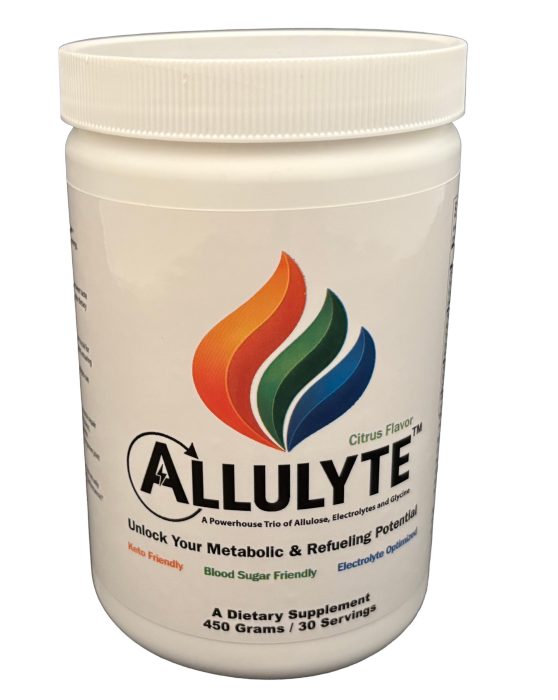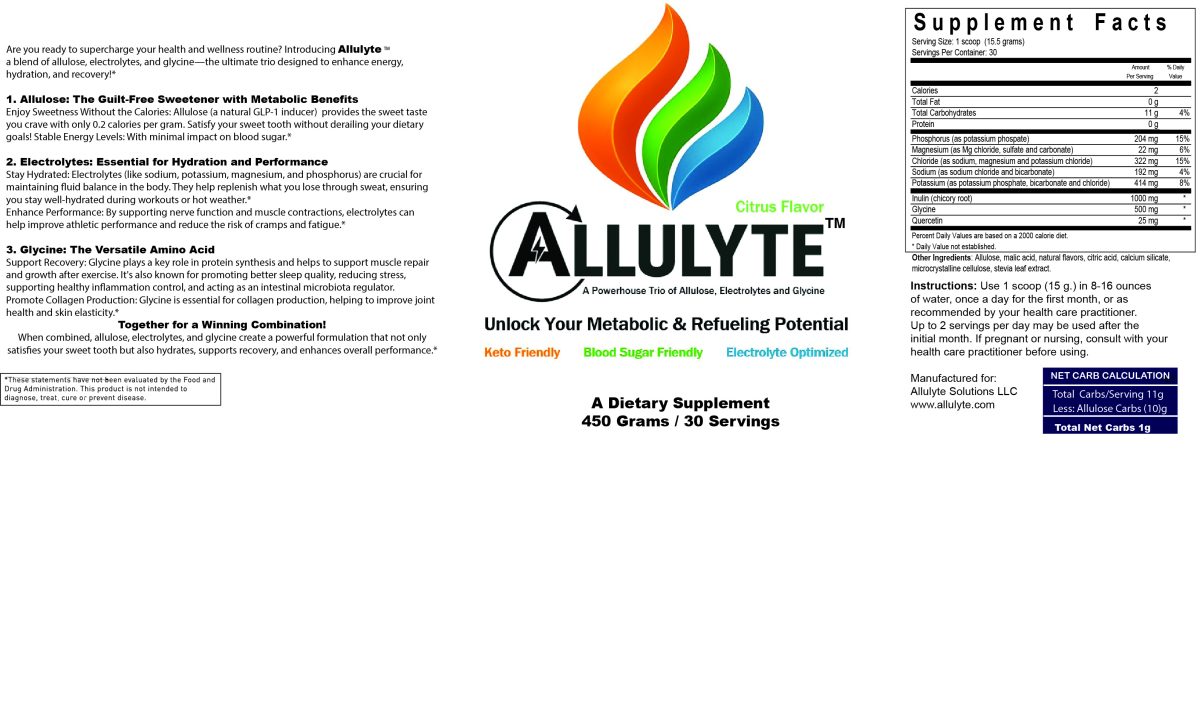 Ready to support your body’s natural
Ready to support your body’s natural
blood sugar balance!
Allulyte Powder is here to lend a hand! This formula uses a few different approaches to help you feel your best:
- Allulose, a unique sweetener, may help stimulate GLP-1, a hormone that’s great for managing blood sugar and keeping you feeling satisfied.
- It can also gently encourage your vagus nerve, which helps with GLP-1 release too.
- We’ve included inulin to nurture your gut’s friendly bacteria, who in turn help release GLP-1.
- Glycine plays a part by helping your intestinal cells release GLP-1.
- And Synerplex Electrolytes withpotassium phosphate may have similar beneficial effects to GLP-1 on how your body handles sugar.
It’s all about working in harmony to
help you maintain healthy blood sugar levels.

1. Nature and Production:
- Rare Sugar: Allulose is considered a “rare sugar” because it’s not as abundant in nature as other sugars like fructose or glucose.
- Natural Occurrence: It’s found in trace amounts in foods like figs, raisins, maple syrup, and molasses.
- Commercial Production: Most commercially available
allulose is produced by converting fructose from sources like cornstarch through enzymatic processes.
2. Properties and Taste:
- Sweetness: Allulose is about 70% as sweet as sucrose (table sugar).
- Taste Profile: It has a clean, sweet taste similar to sugar, with minimal or no aftertaste, unlike some artificial sweeteners.
- Low-Calorie: Allulose is a low-calorie sweetener, providing only about 0.2 to 0.4 calories per gram compared to 4 calories per gram in sugar.
3. Metabolism and Health Effects:
- Minimal Metabolism: Allulose is absorbed in the small intestine but is not significantly metabolized by the body and is primarily excreted in urine.
- Blood Sugar Impact: It has a minimal impact on blood glucose and insulin levels, making it suitable for people with diabetes or those following a ketogenic diet.
- Potential Benefits: Studies suggest potential benefits including improved glycemic control, enhanced fat burning, and reduced fat accumulation in the liver.
- Safety: Allulose is generally recognized as safe (GRAS) by the FDA.
